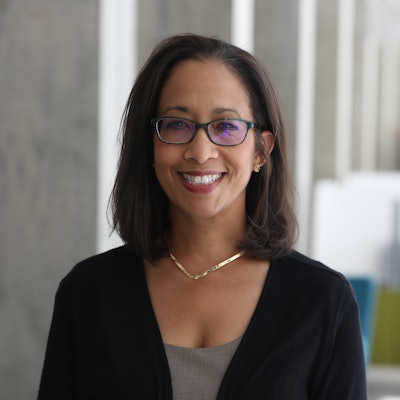 Dr. Rosario Ceballo
Dr. Rosario Ceballo
Being a Latinx scholar and researcher in the academy has often felt like a lonely enterprise, said Dr. Rosario Ceballo, an associate dean of social studies and professor of women’s and gender studies and psychology at the University of Michigan (U-M).
And she is not alone.
A 2019 study of the characteristics of postsecondary faculty done by the National Center for Education Statistics showed that Latinx men and women make up only 6% of all full-time faculty, despite making up almost 20% of the American population.
Dr. Deborah Rivas-Drake, a professor of psychology and education at U-M, noted that the feeling of isolation can be more extreme because Latinx scholars are spread out in their institutions across different disciplines, working in silos. To bring them together, she and Ceballo co-founded the U-M Working Group to Advance Social Science Scholarship and Teaching on Latinx Youth and Families.
The working group, established in the fall of 2018, unites scholars (faculty and graduate students) from both in and outside of U-M, crossing disciplinary boundaries to discuss research, share advice, and form a strong community of Latinx scholars. Members have joined or participated from across a wide range of studies, including psychology, education, social work, romance languages, sociology, American culture, and political science.
The group is funded in part by U-M’s National Center for Institutional Diversity (NCID) Think-Act Tank Grants program.Dr. Tabbye Chavous, director of NCID, said that the Latinx working group creates a unique opportunity “for building scholarly communities for innovation, for shared sense of purpose, and to make broader social impacts.”
All of this, Chavous added, “can be critical” to creating and keeping a thriving population of Latinx faculty, which “requires long-term commitment and leadership.”
“More than ever, we need to ensure that our Latinx faculty across all ranks are supported and valued, as their work is critical to the future of our communities, society, and world,” said Chavous.
The multi-disciplinary elements in the group have become one of its greatest strengths. Discussions vary about a vast range of topics, from immigration to parenting, from voting patterns to Latinx identity, and each discipline offers its own important perspective. Participants listen to each other and weave those lessons into their own teaching and research.
“We all share a common belief in the importance of studying Latinx families from a strengths-based perspective,” said Cabello.
Guest speakers are often invited to offer lectures and insights, including Dr. Jorge Duany, the director of Florida International University’s Cuban Research Institute and professor of anthropology. In 2019, Duany joined three U-M scholars to highlight research being done on the lived experience of Puerto Ricans after Hurricane Maria devastated the island in 2017.
 Dr. Deborah Rivas-Drake
Dr. Deborah Rivas-Drake
The working group has also hosted scholars like Dr. Cynthia Garcia Coll, professor in the clinical Ph.D. program and associate director of the Institutional Center for Scientific Research at Albizu University in San Juan, Puerto Rico; Dr. Cati de los Rios, a professor of literacy, reading, and bi or multilingual education from University of California Berkeley; and Dr. Michael Jones-Correa, director of the Center for the Study of Race, Ethnicity, and Immigration at the University of Pennsylvania.
While the pandemic threw a wrench into planned in-person lectures, the working group pivoted, like so many, to virtual meetups, sometimes having informal lunchtime talks and conversation with guest lecturers.
“The setting provided a lot of time for questions and answers, as well as a more free-flowing discussion,” said Ceballo. “Group members mentioned how much they appreciated the opportunity to connect with other Latinx scholars at different institutions, and how few opportunities there are to make such connections.”
Rivas-Drake added that guests are able to share what it is like to be a luminary in their field, to be doing truly “pathbreaking work, without necessarily having many supports in place at the time.”
“It was affirming to hear them describe how they have invested in mentoring the next generations of scholars and how they continue to open doors for others,” said Rivas-Drake.
She and Ceballo are taking much of what they’ve learned in the working group and transforming it into a book or a journal, tentatively titled Growing Up Latinx in the Land of Liberty. Chapters will explore current social challenges facing Latinx children and families, said Ceballo, “with particular attention to how youth and families draw upon individual, community, and cultural resources to navigate current challenges.”
Liann Herder can be reached at [email protected].
















